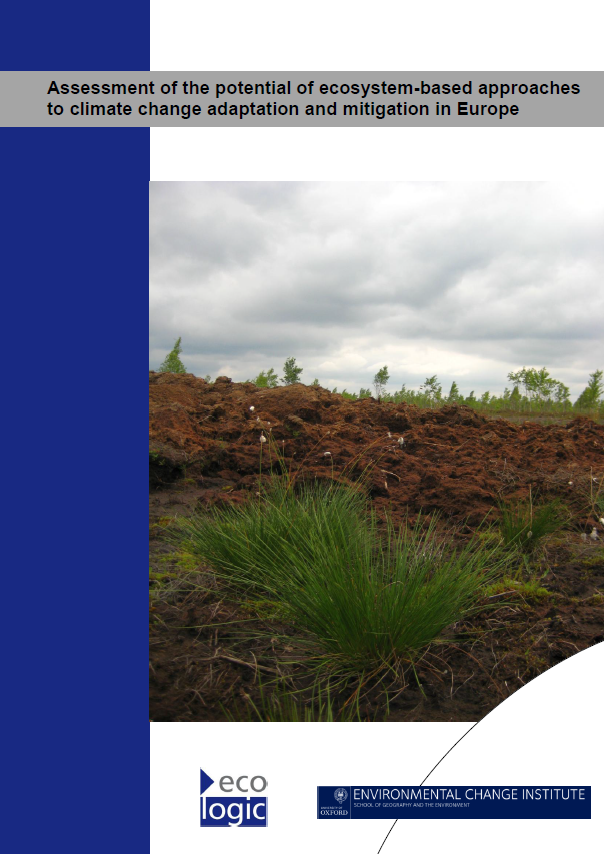Assessment of the Potential of Ecosystem-based Approaches to Climate Change Adaptation and Mitigation in Europe
- Publication
- Citation
Naumann, Sandra, Gerardo Anzaldua, Pam Berry, Sarah Burch, McKenna Davis, Ana Frelih-Larsen, Holger Gerdes and Michele Sanders (2011): Assessment of the potential of ecosystem-based approaches to climate change adaptation and mitigation in Europe. Final report to the European Commission, DG Environment, Contract no. 070307/2010/580412/SER/B2, Ecologic Institute and Environmental Change Institute, Oxford University Centre for the Environment
This study aimed to address current knowledge gaps regarding the uptake and implementation of ecosystem-based approaches, and thereby gain a better understanding of their role and potential in climate change adaptation and mitigation in Europe. A database of 161 applicable projects, five in-depth case studies, targeted interviews with European Commission officials and a literature review served as the basis for this assessment. Using these sources, this study sought to illuminate the success factors leading to and obstacles hindering the implementation of ecosystem-based approaches in climate change programmes at local, regional, national and transnational levels and provide appropriate recommendations for overcoming existing obstacles. Furthermore, evidence on the costs and benefits of ecosystem-based approaches has been collected and compared to the costs and benefits of traditional engineered approaches for addressing climate change and its impacts.






